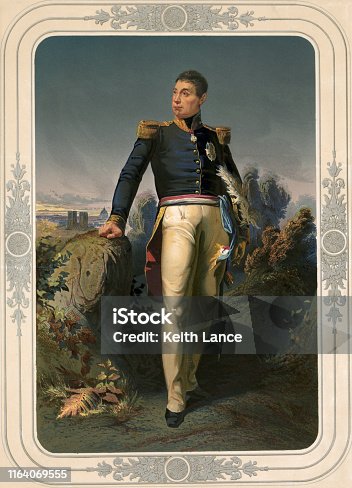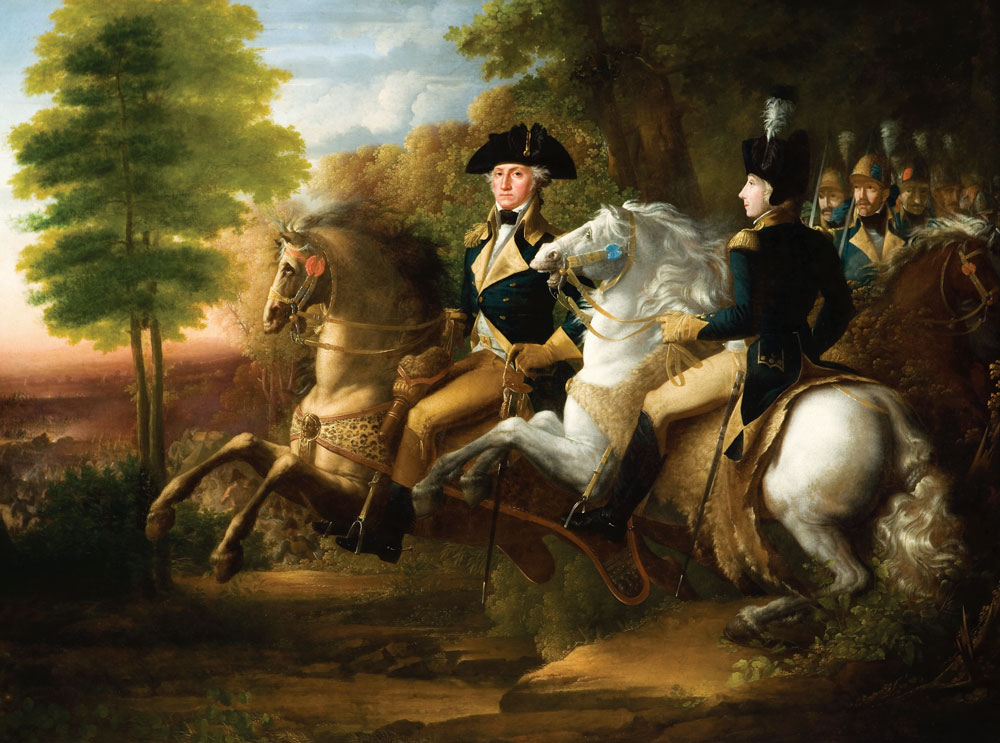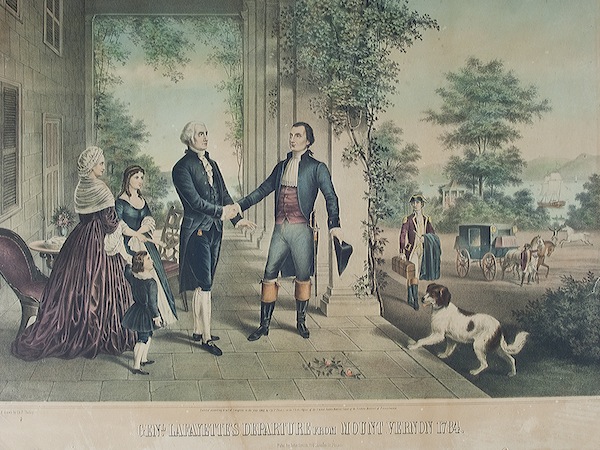


On June 13, 1777, a 19-year-old French aristocrat, Marie-Joseph Paul Roch Yves Gilbert du Motier, Marquis de Lafayette, arrives in South Carolina with the intent to serve as General George Washington’s second-in-command.
Silas Deane, during his service as the Continental Congress envoy to France, had, on December 7, 1776, struck an agreement with Johann de Kalb and Lafayette to offer their military expertise to the American cause. However, Deane was replaced with Benjamin Franklin and Arthur Lee, who were unenthused by the proposal. Meanwhile, King Louis XVI feared angering Britain and prohibited Lafayette’s departure. The British ambassador to the French court at Versailles demanded the seizure of Lafayette’s ship, which resulted in Lafayette’s arrest. Lafayette, though, managed to escape, set sail and elude two British ships dispatched to recapture him.
Following his safe arrival in South Carolina, Lafayette traveled to Philadelphia. Although Lafayette’s youth made Congress reluctant to promote him over more experienced colonial officers, the young Frenchman’s willingness to volunteer his services without pay won their respect and Lafayette a commission as major-general on July 31, 1777.
Lafayette served at Brandywine in 1777, as well as Barren Hill, Monmouth and Rhode Island in 1778. Following the formal treaty of alliance with Lafayette’s native France in February 1778 and Britain’s subsequent declaration of war, Lafayette asked to return to Paris and consult the king as to his future service. Washington was willing to spare Lafayette, who departed in January 1779. By March, Franklin reported from Paris that Lafayette had become an excellent advocate for the American cause at the French court.
Following his six-month respite in France, Lafayette returned to aid the American war effort in Virginia, where he participated in the successful siege of Yorktown in 1781, before returning to France and the further service of his own country.
It is my sincere desire to provide readers of this site with the best unbiased information available, and a forum where it can be discussed openly, as our Founders intended. But it is not easy nor inexpensive to do so, especially when those who wish to prevent us from making the truth known, attack us without mercy on all fronts on a daily basis. So each time you visit the site, I would ask that you consider the value that you receive and have received from The Burning Platform and the community of which you are a vital part. I can't do it all alone, and I need your help and support to keep it alive. Please consider contributing an amount commensurate to the value that you receive from this site and community, or even by becoming a sustaining supporter through periodic contributions. [Burning Platform LLC - PO Box 1520 Kulpsville, PA 19443] or Paypal
-----------------------------------------------------
To donate via Stripe, click here.
-----------------------------------------------------
Use promo code ILMF2, and save up to 66% on all MyPillow purchases. (The Burning Platform benefits when you use this promo code.)





BTW, he was one of the 10 Richest Men in the world. His gold helped our cause.
Most Americans have no clue how instrumental the French were in the colonists winning the American revolution. The crucial French naval victory at the 1781 Battle of the Capes eliminated the dominance of the British Royal Navy.
Why does no one know this? It is not taught in schools anymore if it ever was. Then General George Washington and French Admiral Comte de Grasse met after the 1781 Battle and became good friends. It was a major naval battle between the British and the French and some historians claim it was pivotal in the colonists eventually winning the revolution. So, many people have heard of General Layfette in regard to the American Revolution, Admiral de Grasse, not as much.